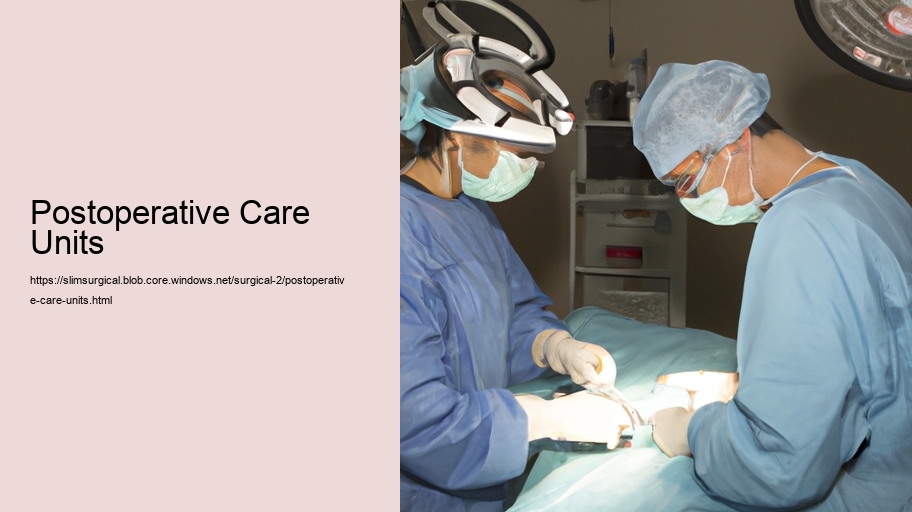Postoperative Care Units: Ensuring Recovery and Wellness After Surgery
When the hum of machines fades and the bright lights of the operating room are left behind, patients find themselves in one of the most critical phases of their surgical journey-the postoperative period. It is here, in the Postoperative Care Units (PACUs), where the delicate process of recovery begins. These specialized units are the bridge between the precision of surgery and the journey back to health, serving as a crucial element in the continuum of care.
Upon emerging from anesthesia, patients are gently ushered into the attentive embrace of the PACU, where the focus is on stabilization, pain management, and the prevention of complications. The environment is designed to be one of quiet vigilance. Each patient is closely monitored as their body adjusts from the controlled unconsciousness of surgery to the waking world. Vital signs are meticulously recorded, and any signs of distress are swiftly addressed. It's a place where technology and compassionate care hold equal importance, creating a cocoon of safety for those in the vulnerable state of post-surgical recovery.
The staff in Postoperative Care Units are a unique blend of skilled professionals, including anesthesiologists, surgeons, nurses, and various support personnel, all trained to deal with the complexities of post-surgical care. Their expertise allows them to decipher the subtleties of a patient's recovery, responding with precision to any changes in condition. Whether it's administering pain relief, supporting respiratory function, or guiding a patient back to consciousness, their actions are guided by a blend of science, experience, and an intrinsic desire to promote healing.
Pain management is a critical component of the postoperative care unit's responsibilities. The aftermath of surgery can be painful, and managing that pain is not just about comfort-it's about recovery. Proper pain control can prevent complications, aid in mobility, and accelerate the healing process. The PACU staff works diligently to assess each patient's pain levels and administer appropriate medications, all while guarding against the potential side effects and complications that can arise from pain-relieving drugs.
Another cornerstone of the PACU is the prevention of postoperative complications. From surgical site infections to deep vein thrombosis, the risks are numerous and potentially life-threatening. The staff's vigilance in monitoring for signs of infection, encouraging movement to prevent blood clots, and ensuring that patients are breathing deeply to stave off respiratory complications is essential. It's a balancing act of encouragement and enforcement, as patients are often reluctant to move or breathe deeply due to pain or grogginess.
Education also plays a significant role in the postoperative care unit. As patients awaken and stabilize, they are gradually introduced to information about their own recovery. Nurses and other health educators take the time to explain what has occurred during surgery, what to expect in the coming days, and how to care for themselves once they leave the unit. This knowledge empowers patients and can significantly improve the success of their recovery.
The transition from the PACU is a significant milestone, signaling that a patient is stable enough to move to a less intensive level of care-whether that be a hospital room or their own home. The seamless handoff of care from the PACU to the next stage is as important as the surgery itself. Detailed reports and care plans are passed along, ensuring no detail is lost. It's a comprehensive approach that prioritizes the continuity of care and the individual needs of each patient.
In conclusion, Postoperative Care Units are essential sanctuaries within the hospital where the journey of healing begins. They are the unsung heroes of the surgical process, administering not just medicine, but also comfort and reassurance. The dedicated professionals who work within these walls understand that their role is not just to monitor and manage, but to nurture and support. The PACU is where the vulnerability of the human body meets the resilience of the human spirit, and where the path to wellness truly begins.
